In the world of psychology, there is a fascinating aspect of human behavior that often goes unnoticed – cognitive biases. These biases shape the way we perceive the world and make decisions, often leading us to irrational thoughts and actions. But fear not, for there is a solution! Introducing “Exploring Cognitive Biases: A Guide to Understanding Human Irrationality.” This comprehensive and insightful guide, brought to you by Lifehackingtools, aims to shed light on these biases and help you gain a deeper understanding of your own mind. So, if you’re ready to unravel the mysteries of human irrationality, this guide is your ticket to a more informed and mindful existence.
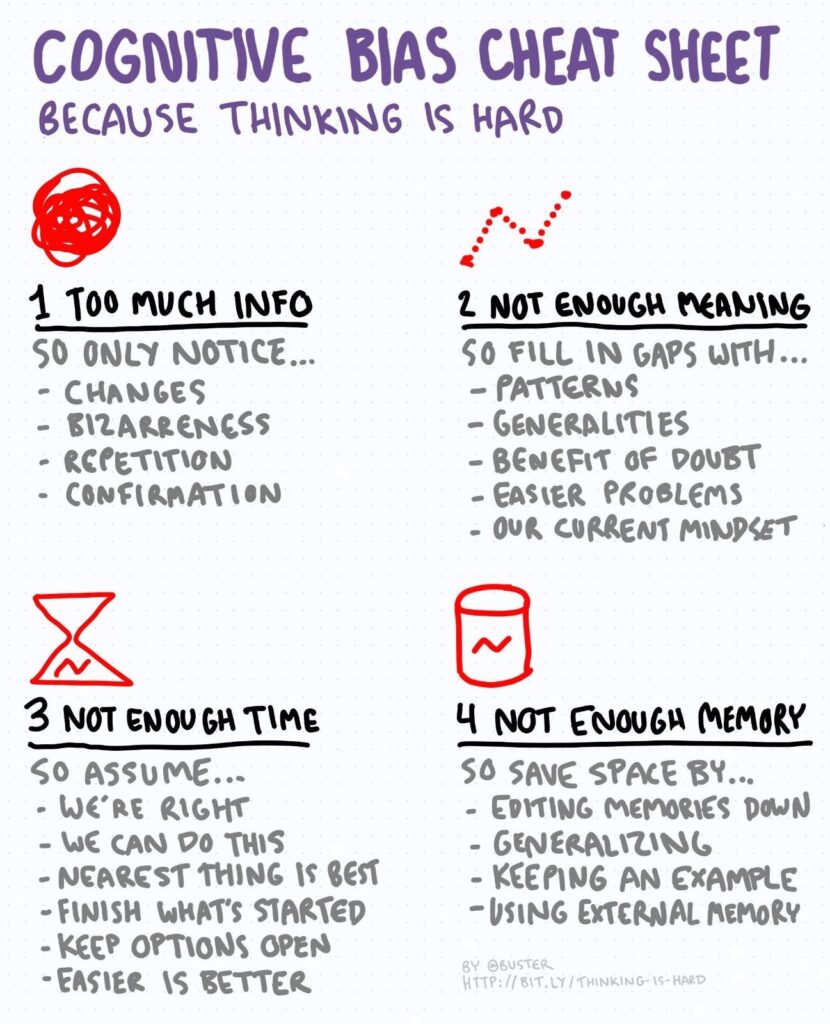
This image is property of miro.medium.com.
Overview of Cognitive Biases
Cognitive biases are inherent mental shortcuts that our brains use to make sense of the world around us. These biases can lead us to make irrational decisions and judgments, often without us even being aware of it. By understanding cognitive biases and their impact, we can gain insight into why we think and behave the way we do.
Definition of Cognitive Biases
Cognitive biases are systematic errors in thinking that occur when our brain processes information. They are a result of our brain’s attempt to simplify and categorize information, leading to biased judgments and decisions. These biases can affect various aspects of our lives, from decision making and judgment to memory and perception.
History of Cognitive Biases Research
Research into cognitive biases dates back to the early 1970s when psychologists Daniel Kahneman and Amos Tversky began exploring the systematic errors in human decision making. Their groundbreaking work paved the way for further investigations into cognitive biases, leading to a deeper understanding of the human mind and its fallibilities.
Common Cognitive Biases
Confirmation Bias
Confirmation bias is the tendency to seek out and interpret information that confirms our existing beliefs and ignore or discount information that contradicts them. This bias can lead to distorted perceptions and reinforce preconceived notions, hindering our ability to make objective and rational decisions.
Availability Heuristic
The availability heuristic is a mental shortcut that relies on immediate examples that come to mind when evaluating a specific topic or making a judgment. It can lead to biased thinking, as we tend to rely on the information that is most readily available in memory, rather than considering the full range of possibilities.
Anchoring Bias
Anchoring bias refers to the tendency to rely too heavily on the first piece of information encountered when making judgments or decisions, even when subsequent information becomes available. This bias can influence our assessments of value, causing us to anchor our judgments and estimates around an initial reference point, often disregarding other relevant information.
Hindsight Bias
Hindsight bias, also known as the “I knew it all along” effect, is the tendency to perceive past events as having been more predictable than they actually were. After an event has occurred, individuals often overestimate their ability to have foreseen the outcome, leading to an inflated sense of certainty and a distorted evaluation of decision-making processes.
Sunk Cost Fallacy
The sunk cost fallacy is the tendency to continue investing in a course of action or decision because of the resources (such as time, money, or effort) that have already been invested, even when the current or future benefits are outweighed by the costs. This bias can cloud judgment and lead to irrational behavior, as individuals feel compelled to justify their past investments rather than considering the present circumstances objectively.
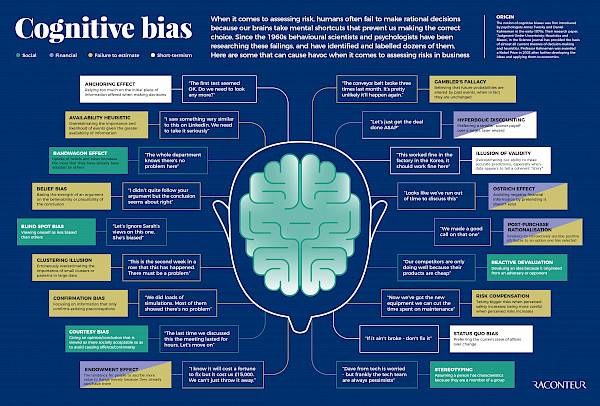
This image is property of ricardo-vargas.com.
Impact of Cognitive Biases
Effects on Decision Making
Cognitive biases can significantly impact our decision-making process. By distorting our perception of information and influencing our judgments, biases can lead us to make suboptimal choices or overlook crucial factors. Understanding the potential biases at play can help us make more informed decisions and avoid common pitfalls.
Effects on Judgment and Perception
Cognitive biases can also influence our judgment and perception of the world around us. Our biases shape our interpretation of events, leading to biased assessments and skewed perspectives. By recognizing and challenging these biases, we can foster a more accurate understanding of reality.
Effects on Memory
Cognitive biases can also affect our memory. Biases can lead to distortions in our recollection of events, as our brains selectively remember information that aligns with our existing beliefs or expectations. This selective memory can reinforce biases and further perpetuate irrational thinking.
Cognitive Biases in Everyday Life
Cognitive Biases in Advertising
Advertisers often leverage cognitive biases to influence consumer behavior. By understanding how biases impact our decision making, advertisers can tailor their messages to appeal to our biases and sway our choices. Being aware of these tactics can help us make more informed consumer decisions.
Cognitive Biases in Politics
Cognitive biases can shape political discourse and decision making. By understanding the biases at play, we can approach political discussions with a more critical eye, evaluate information objectively, and avoid falling into the trap of biased thinking.
Cognitive Biases in Relationships
Cognitive biases can impact our relationships, affecting how we perceive and interact with others. By recognizing our biases, we can cultivate empathy, understanding, and better communication skills, leading to healthier and more fulfilling relationships.
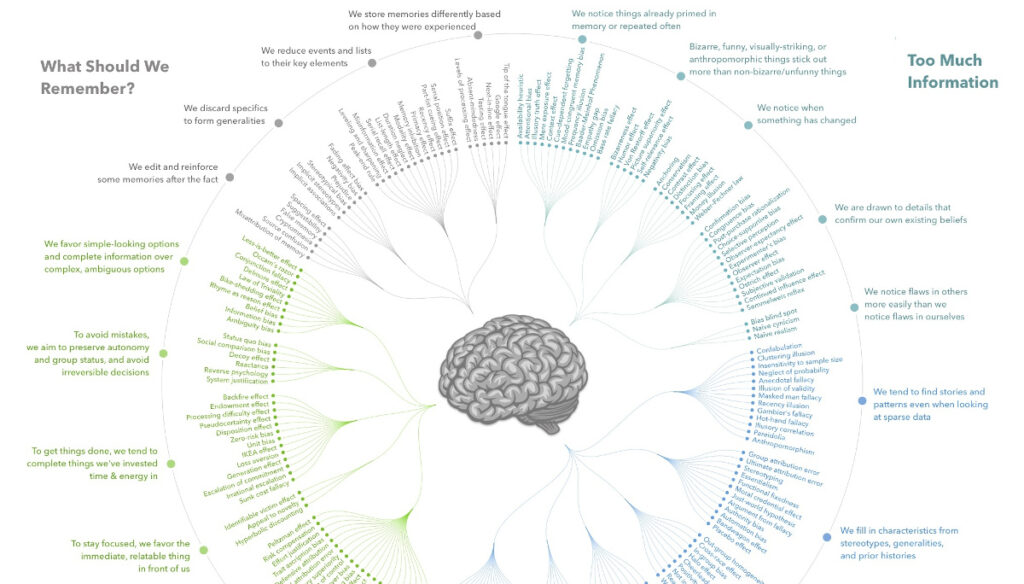
This image is property of www.visualcapitalist.com.
Understanding the Mechanisms of Cognitive Biases
Dual Process Theory
Dual process theory suggests that there are two different cognitive systems at work in decision making: one that is fast, automatic, and intuitive, and another that is more deliberate and analytical. Understanding this theory can help us recognize how cognitive biases may arise from these different systems and discover strategies to mitigate their impact.
Heuristics and Biases Approach
The heuristics and biases approach examines how cognitive biases result from our brain’s reliance on mental shortcuts, known as heuristics, when making judgments or decisions. By understanding these heuristics and how they can lead to biases, we can develop strategies to overcome their influence and make more rational choices.
Emotional Influences on Biases
Emotions play a significant role in cognitive biases. Our feelings and emotional states can shape our perceptions and judgments, leading to biased thinking. Being aware of the emotional influences on biases can help us discern when our emotions may be clouding our judgment and make more rational decisions.
Overcoming Cognitive Biases
Awareness and Recognition of Biases
The first step in overcoming cognitive biases is to become aware of their existence and recognize when they may be affecting our thinking. By fostering self-awareness, we can consciously challenge our biases and approach decision making with a more open mind.
Cultivating Critical Thinking Skills
Developing critical thinking skills can help us identify and analyze cognitive biases. By questioning assumptions, considering alternative perspectives, and evaluating evidence objectively, we can mitigate the impact of biases on our thinking and decision making.
Seeking Diverse Perspectives
Engaging with diverse perspectives can help counteract cognitive biases. By actively seeking out different viewpoints, we can challenge our biases and broaden our understanding of complex issues. This exposure to diverse perspectives fosters critical thinking and helps us make more balanced and informed decisions.
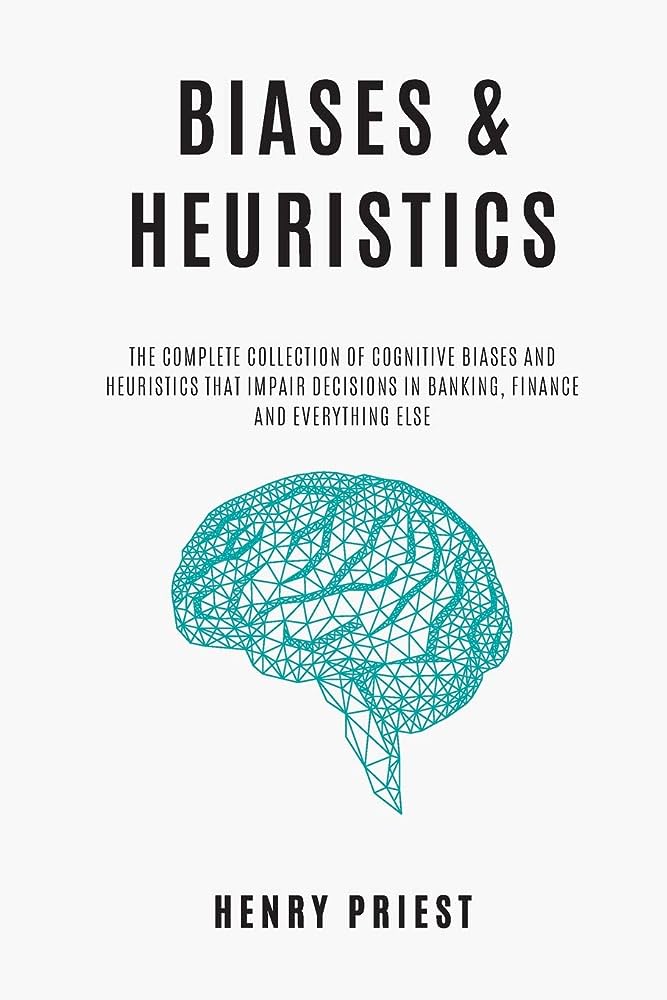
This image is property of Amazon.com.
Cognitive Biases in the Workplace
Cognitive Biases in Hiring
Cognitive biases can influence the hiring process, leading to biased evaluations of candidates. By recognizing these biases, organizations can implement strategies to ensure fair evaluation and selection of candidates, fostering diversity and avoiding discrimination.
Cognitive Biases in Performance Evaluation
Cognitive biases can also impact the appraisal and evaluation of employee performance. By understanding and mitigating biases, organizations can ensure fair and accurate assessments, leading to an equitable and productive work environment.
Cognitive Biases in Leadership
Cognitive biases can affect leadership decision making, potentially leading to suboptimal outcomes. Leaders who are aware of their biases and actively seek to challenge them can make more informed decisions and foster a positive and inclusive work culture.
Cognitive Biases in Negotiation and Persuasion
Influence of Biases on Negotiation Outcomes
Cognitive biases can significantly influence negotiation outcomes. By understanding biases like anchoring bias and confirmation bias, we can adopt strategies to mitigate their effects, making negotiations fairer and more successful.
Persuasive Techniques Exploiting Biases
Advertisers, politicians, and others often use persuasive techniques that exploit cognitive biases. Recognizing these techniques can help us make more informed decisions by shielding ourselves from manipulations that prey on our biases.
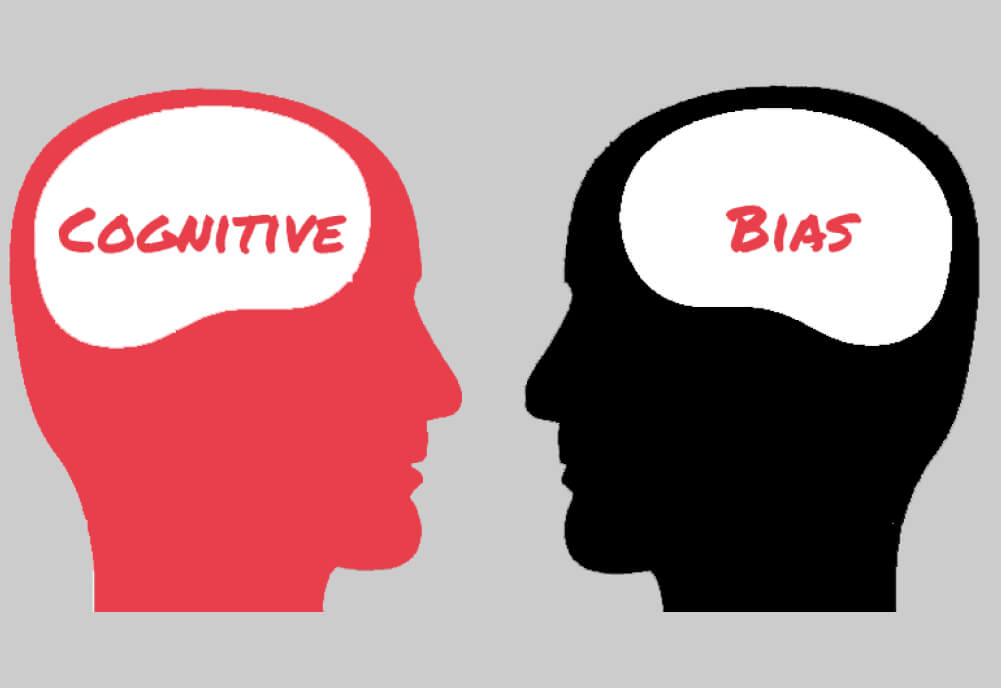
This image is property of assets.website-files.com.
The Role of Cognitive Biases in Economics and Finance
Cognitive Biases and Investor Behavior
Cognitive biases have a profound impact on investor behavior. Biases like overconfidence bias and loss aversion can lead to irrational investment decisions. Recognizing these biases is crucial for investors to make rational and informed choices.
Cognitive Biases in Behavioral Economics
Behavioral economics explores the role of cognitive biases in economic decision making. By incorporating insights from psychology into traditional economic models, researchers can better understand and predict human behavior and improve economic policies.
Future Research and Implications
Advancements in Cognitive Biases Research
Continued research into cognitive biases promises to shed further light on the mechanisms and implications of biased thinking. Advances in fields like neuroscience and psychology will enable a deeper understanding of human cognition and pave the way for more effective strategies to mitigate the impact of biases.
Applications in Education and Public Policy
The insights gained from cognitive biases research can have wide-ranging applications in education and public policy. By incorporating knowledge of biases into curricula and policy-making processes, we can promote critical thinking, enhance decision making, and create a more equitable and inclusive society.
In conclusion, understanding cognitive biases is essential for navigating the complexities of human thinking and decision making. By recognizing and challenging our biases, we can strive for more rational and informed choices, leading to better outcomes in various aspects of our lives.